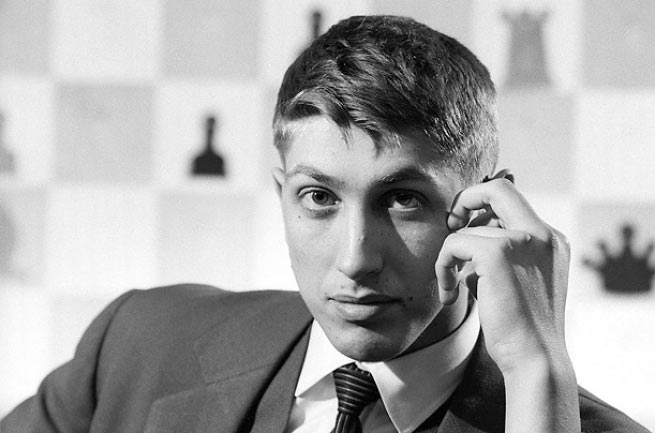In the spring of 1943, Robert James Fischer was born in Chicago, a man who rose to fame as one of the most eccentric chess kings. His father was German Hans Gerhard Fischer, who left the family when Robert was less than three years old. The future champion’s mother was Jewish, after separation from her husband she moved with her son to Brooklyn. Little Bobby was introduced to chess by his sister Joan. He quickly became fond of the ancient game and at the age of ten became a member of the chess club, which brought together the best players of the city. In 1957 fourteen-year-old Fischer became the youngest champion of the USA. Some time later, Robert left school to devote himself to chess, from time to time giving simulcasts, as well as winning one chess tournament after another.
Robert James Fischer’s hobbies
But it wasn’t just chess that the child prodigy devoted his time to – he sometimes went swimming, played tennis and even went skiing. He also studied several foreign languages, one of which was Russian. Robert paid particular attention to learning Russian, which is explained by the fact that at that time Soviet chess players dominated, and many chess textbooks were published in Russian. Taking part in various competitions, he often complained to the organisers, first about the noise in the hall, then about the lighting, then about the size of the prizes. Often the organisers tried to accommodate the champion’s wishes, but sometimes Fischer still refused to continue participating in this or that tournament.
The first serious chess tournaments
In 1972, Fischer won the right to fight for the title of world champion against Soviet chess player Boris Spassky. Prior to that, he had defeated Mark Taimanov and Bent Larsen in elimination matches (both by 6-0), and then defeated Tigran Petrosian with a smaller but very solid margin. The match for the chess crown was held in Reykjavik. Fischer lost the first game and also a no-show in the second, for which he was declared a forfeit. But after trailing 0-2, Fischer came to his senses and won the match by four points. Having become world champion at the age of 29, Fischer became a reclusive recluse, and was rarely seen by his fans.
Personal life
There were several women in Robert Fischer’s life, but he loved none of them as much as he loved chess. He had relations with the Hungarian chess player Petra Schneider, the Japanese chess player Miyoka Watai, and the Filipina Marilyn Young.

The turning point in a chess career
In 1975 Robert Fischer had to defend his title against Soviet grandmaster Anatoly Karpov. The champion made many demands to FIDE, most of which were met, but Robert still refused to sit at the board, as a result of which he was stripped of his title and Karpov was declared world champion. About a year after being stripped of the crown, Fischer tried to negotiate with Karpov about organising a match that avoided FIDE, but the negotiations went nowhere. Fischer then stopped participating in major chess tournaments, although many years later he played a match against another opponent, former champion Boris Spassky, again defeating the Soviet grandmaster. Robert agreed to the match because of the financial difficulties he was experiencing at the time.
During the course of his chess career, Robert Fischer has played Mikhail Tal, Paul Keres, Vasily Smyslov, Miguel Naidorf, Ratmir Kholmov and other famous grandmasters.
In 1996 the former champion introduced to the world a new kind of chess he had invented. The pieces in the starting position could be placed in a multitude of ways (subject to certain restrictions), totalling more than nine hundred, which made it possible to refuse the usual openings and play in a new format, in which a player capable of analysing the position accurately would have the advantage. The invention is called “Fischer Chess” and is sometimes played in blitz tournaments.
Because of his remarks about the September 11, 2001 terrorist attack, Fischer had an argument with the U.S. government and had his passport revoked by the authorities. He had to emigrate to the Philippines, then to Japan (where he had to spend several months in prison), and then to Iceland, where he died in 2008.
